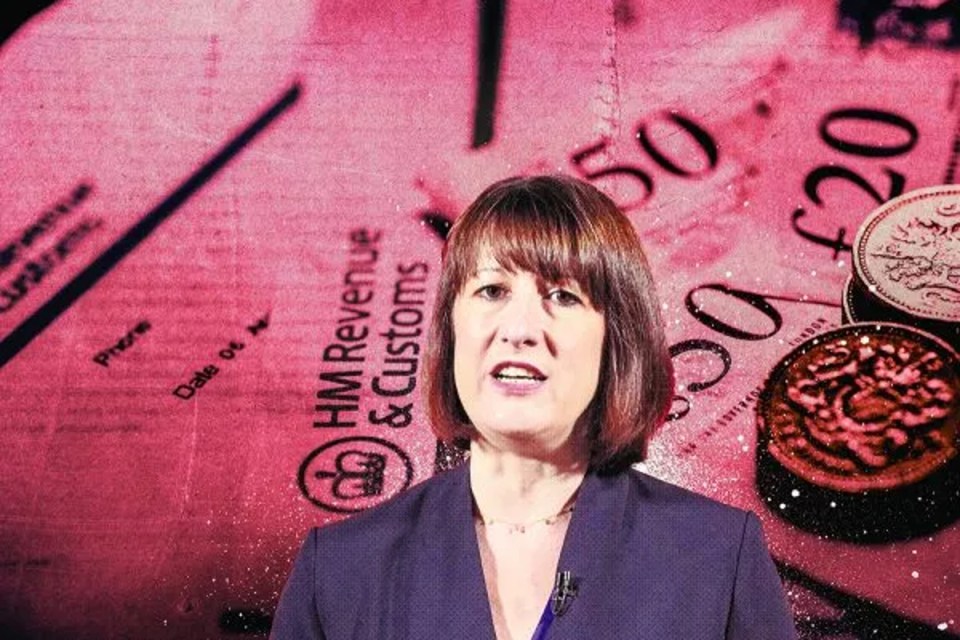Reeves is right to squeeze private equity – but a sweeping capital gains hike will hurt the City, says Cavendish chair
The government is right to launch a raid on the profits made by private equity bosses but a sweeping hike in capital gains and inheritance tax could suck investment out of the City, the chair of investment bank Cavendish has warned. Lisa Gordon, who chairs the London-listed broking group, urged Rachel Reeves to be “more [...]

![Lisa Gordon: “I think we need to be brave. We need to be logical. We need to explain it. I'm not talking about [tax on] carried interest going from 20 per cent to 60 per cent”](https://www.cityam.com/wp-content/uploads/2024/09/0509-Lisa-Gordon-1.jpg?w=1107)
The government is right to launch a raid on the profits made by private equity bosses but a sweeping hike in capital gains and inheritance tax could suck investment out of the City, the chair of investment bank Cavendish has warned.
Lisa Gordon, who chairs the London-listed broking group, urged Rachel Reeves to be “more creative” with her tax plans at the budget in October and soften any move to indiscriminately hike the levy on capital gains (CGT) and inheritance tax.
However, she said lifting the rate paid on profit made by private equity executives, known as carried interest, was “100 per cent” the right decision. Cavendish makes a chunk of its money working with private equity firms on the sale of assets.
“I’m not biting the hand that feeds part of our business, I’m just being factual,” she told City A.M.
“If you look at the exposure of private equity, and you look at the fiscal shortfall of all that carried interest wealth being created – that’s taxed at 2[8] per cent whereas the rest of us are taxed at effectively 61 per cent, even if you’re a lower rate taxpayer.”
The move to hike the rate paid on so-called carry has proved divisive in the City. Lifting the charge could raise around £500m by the party’s own estimates but there are fears it could trigger an exodus of dealmakers to lower tax jurisdictions.
“I think we need to be brave. We need to be logical. We need to explain it. I’m not talking about [tax on] carried interest going from 20 per cent to 60 per cent,” Gordon said.
However, she warned that raising the wider levy on capital gains would be an “own goal” for Labour and could eat away at any incentive to start businesses in Britain.

“If you hammer value creators, then you’ve got no hope in hell of achieving your growth agenda,” she added.
The comments come as Reeves prepares to roll out a number of revenue raisers at her first budget in October, with a hike in CGT and inheritance tax seen as the most likely levers to be pulled by the new government.
Scrapping inheritance tax relief on AIM-listed shares could raise around £1.1bn but several investment groups have warned such a move could trigger a sell-off in London’s junior stock markets, AIM and Aquis.
Inheritance tax funds account for between £6bn and £7bn of investment in AIM and Aquis listed stocks – some 10 per cent of the total value of the both markets, according to the UK Equity Markets Association.
“If they remove, or do what they see as closing a loophole on IHT relief for AIM, I think that’s a huge mistake that won’t raise very much and will just take away a big attraction,” Gordon warned.
She urged Reeves to alternatively clampdown on major global tech firms in the UK as a means of raising more capital.
Pointing to the reportedly low levels of tax by Amazon, she said:
I think the fiscal hole that’s opened up over the last 15 years from digital and tech companies not paying anywhere near a fair share of tax has just put more and more burden on existing taxpayers
Low tax bills for big US tech firms in the UK have been a bugbear of campaigners for years. According to analysis from campaign group Taxwatch last year, seven large US-based technology groups may have made almost £15bn of profit from selling to UK customers in 2021 but cumulatively they paid only £753m in tax, stripping the exchequer of some £2bn in potential revenue.
An Amazon spokesperson rejected the figures and said it ranks in the top 15 largest UK taxpayers for taxes borne and collected.
A Treausry spokesperson said: “We are fully committed to closing the tax gap, and our Digital Services Tax remains in place as we continue to play a leading role in reforming global tax rules to ensure that large multinationals pay the right amount of tax in the UK.”
Cavendish birthday
The comments come as Cavendish marks a year since it was created from the £43m merger of Cenkos Securities and Finncap in September 2023.
Formerly the chair of specialist stockbroker Cenkos, Gordon said the tie-up has been “lazily lumped in” to the wave of consolidation that has swept through London’s mid-market banking sector as firms grapple with a drop-off in deals and fees.
The two firms began to discuss a merger in 2021 when “everybody was doing well” and it was “more a progressive move, not a defensive one,” she said.
“We looked around and really wanted to get into private growth capital, because that would mean that we could be engaged with a company across much more of its life journey and life cycle. So from private equity, into a possible exit or dual track IPO [where companies prep for an IPO or deal at the same time],” she added.
A number of London’s mid market brokers have sought safety in scale in the past two years, including Numis – which was bought by Deutsche – and Panmure Gordon and Liberum, which merged into a single outfit earlier this year.
In its first half year set of numbers as a combined company, Cavendish said it had advised on over 120 deals and boosted revenues by around 80 per cent. However, the firm slumped to a loss of £3.9m across the full year, driven by its decision to pay staff full bonuses. It also shaved its headcount from around 200 to 157 as part of the deal, with back-office staff feeling the brunt of the cuts.
Cavendish makes the lion’s share of its cash advising on deals among smaller mid-market firms and private companies, an area of the market that has been squeezed by a drop-off in investment and flood of firms leaving the market.
However, ministers and regulators have hurried through a slew of reform efforts over the past two years to try and revive their appeal, including a new set of listing rules from the Financial Conduct Authority in July.
“The new listing rules have gone a long way to attract earlier stage companies, so I haven’t got huge complaints there,” Gordon said. “I think we now need to be speaking with one voice, and really underpinning the attraction of London.”



